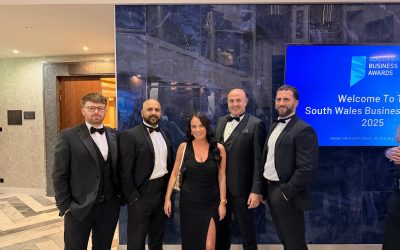Owning a furnished holiday let (FHL) offers generous tax incentives that many owners are unaware of. One of the most advantageous are capital allowances, and from April 2025 these look set to be abolished for FHLs. In this article, we will explore what a furnished holiday let is, what capital allowances are, and what owning an FHL means for your tax and capital allowances.
What is a furnished holiday let?
A furnished holiday let (FHL) is a type of short-term rental accommodation that can be used as a lucrative way for people to earn additional income. It is seen as a business for tax purposes. However, there are several different criteria that has to be met in order for the short-term rental to be considered an FHL for tax purposes:
- It has to have been bought with the intention of being let commercially and making a profit.It has to be available to let for at least 210 days out of the year, and actually let for 105 days out of the year.
- It must be located in the UK or the European Economic Area.
- There has to be enough furniture provided for normal occupation.
- The property cannot be let to the same person for more than 31 days consecutively.
If this criteria isn’t met, the income made from the FHL will be treated as if it were from a Buy-to-Let, and you will not be able to claim capital allowances.
What are capital allowances?
Capital allowances are a type of tax relief that businesses can claim on certain types of capital expenditure, including assets they acquire for use in their trade or business. They provide tax relief on the reduction in value of ‘plant and machinery’ assets. In the context of holiday lets, ‘plant and machinery assets’ means the fixtures, fittings and furniture essential to the running of your business. Unbeknown to many FHL owners, however, is that they can also claim on items that were already in their property when it was purchased.
Capital allowances enable FHL owners to deduct the value of specific assets and items from their profits, in turn reducing their tax liability.
Instead of deducting the full cost of these assets from their taxable income in the year of purchase, businesses can spread the cost over several years, or choose to offset the full amount of certain assets in the first year through an Annual Investment Allowance.
You aren’t able to claim capital allowances for Buy-to-Lets, as HMRC class these as an investment, rather than a trading business.
However, legislation is changing, and from April 2025, owners of furnished holiday lets will no longer be able to claim capital allowances!
What counts as ‘plant and machinery assets’?
As we mentioned above, you can claim capital allowances on ‘plant and machinery assets’. But what counts as ‘plant and machinery’?
According to gov.uk, plant and machinery includes:
- Items that you keep to use in your business – in FHLs, this can include furniture, sanitary ware, white goods and appliances, and carpets
- Costs of demolishing plant and machinery
- Fixtures, for example fitted kitchens or bathroom suites, heating and electric systems
- Alterations to a building to install plant and machinery – this does not include repairs, but can include extensions or reconfiguring the layout to install additional assets
What doesn’t count as ‘plant and machinery assets’?
Now that you have a bit of an idea of what is included under the ‘plant and machinery assets’ category, you might be wondering what it doesn’t include.
You can’t claim plant and machinery allowances on:
- Leased items, unless you have a hire purchase contract or long funding lease
- Anything only for business entertainment, such as a yacht or karaoke machine
- Land
- Structures, such as roads, docks or bridges
- Buildings, including doors, gates, shutters, or mains water and gas systems
When can you claim capital allowances on your holiday let?
If your FHL property is new – either you have built a new FHL property or converted an existing property into a furnished holiday let, you are able to claim capital allowances on the eligible assets bought for that property. These can be claimed in your self-assessment tax return if you’re a sole trader, or in your company accounts if you operate as a company.
If you have purchased an existing FHL, or residential property that hasn’t previously claimed full capital allowances, you are able to claim these during the purchase of the property through a Section 198 Election.
How to make a capital allowance claim for holiday lets
Making a capital allowance claim typically requires the expert eyes of surveyors and capital allowances specialists. It involves several steps and different considerations that you need to be aware of:
- Keep detailed records: Keep records of all capital expenditure related to your holiday let, including invoices, receipts, and documentation of any assets that you have bought.
- Identify qualifying assets: Identify the ‘plant and machinery’ assets within the property that qualify for capital allowances – furniture, kitchen equipment, furnishings, and fixtures.
- Submit the claim: Include the capital allowance claim as part of your tax return or submit it separately according to the requirements of your tax authority. Ensure that all necessary documentation and supporting evidence are provided with the claim.
- Check your property is eligible: We’ve already run through the criteria that your holiday let accommodation needs to meet in order to qualify for capital allowances. Check your property against this criteria to ensure that it qualifies for capital allowances
- Seek professional advice: Consider seeking advice from an accountant or professional capital allowances advisor. They will be able to help ensure that you maximise your claim while complying with tax laws.
How Eureka Capital Allowances can help
At Eureka, we have a team of Capital Allowances Consultants with over 20 years’ of experience, helping business property owners unlock thousands of pounds of hidden tax relief in their property.
Contact us today to discover how we can help you.



